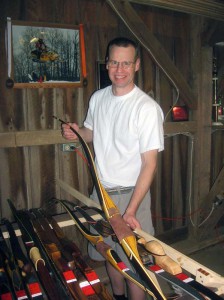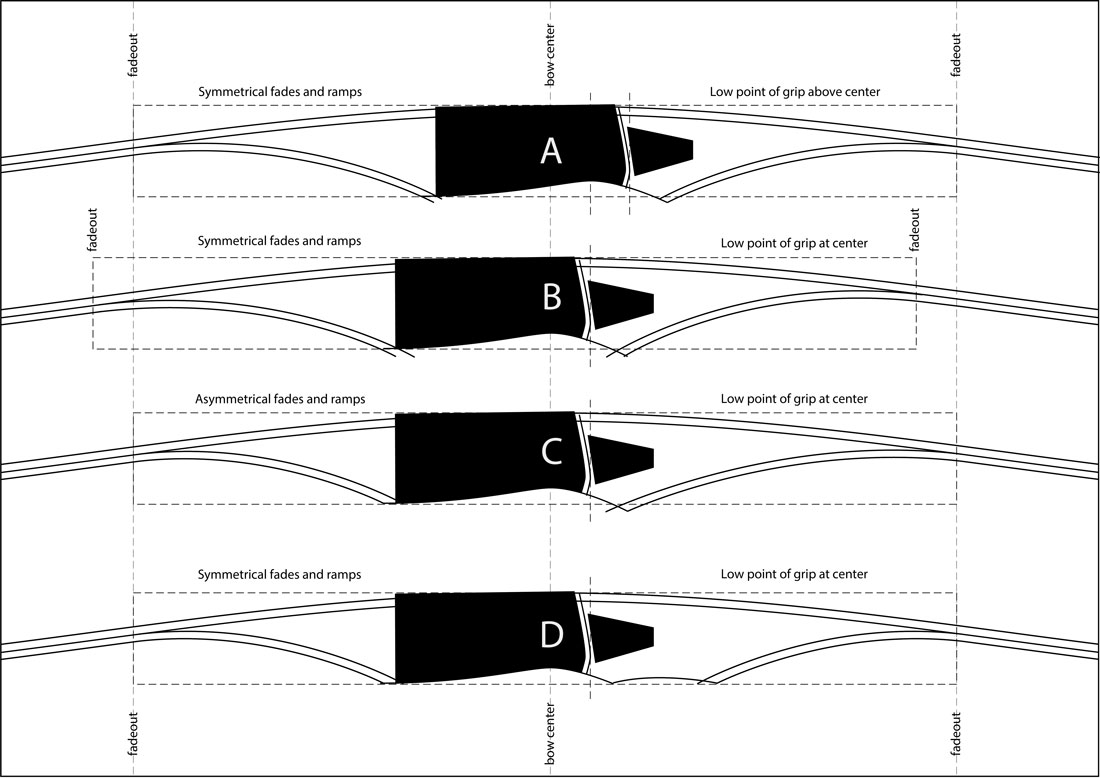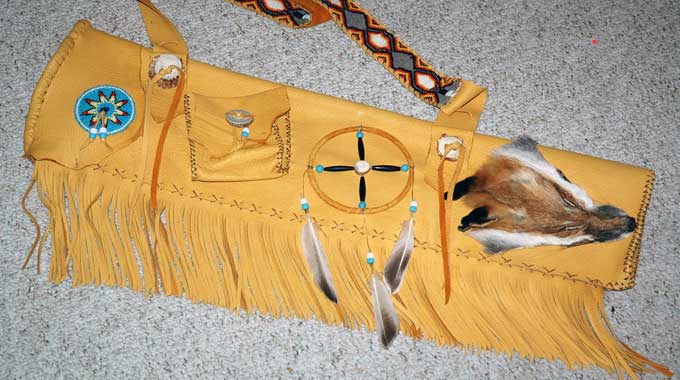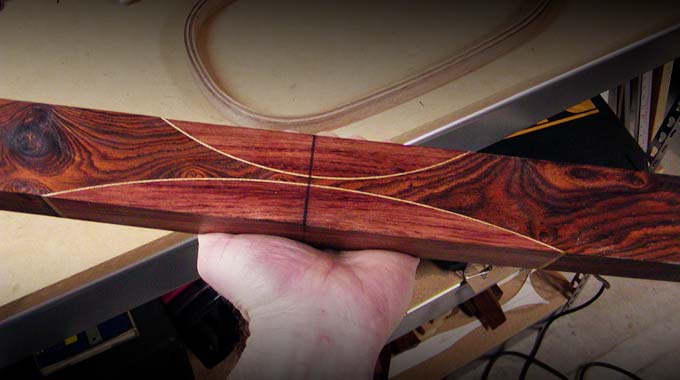I’ve experimented with making longbows with four different riser layouts. Riser A represents probably the…
I can help you build your own bow!
Hello and welcome to my bow building blog! This is my first post in the blog. My name is Jim Thorne and I want to help you learn how to “build your own bow!” Some readers may already know me as “jwillis” at some internet archery forums where I frequently post ideas and build alongs about bow making.
I’ve been an avid outdoor enthusiast since I was a young boy. My wife, son, daughter and I enjoy hunting for deer and turkeys in the woods of central Missouri, and fly fishing for trout in the spring fed creeks and tail water trout fisheries of southern Missouri.
I remember making my first bow from a green stick that I found in the yard when I was a very young boy. I bent it over my knee and tied on a piece of nylon twine for a string. It was simple and primitive but really fun to shoot. The next few days were spent chasing my brothers around the yard and shooting twig arrows at each other while we pretended to be cowboys and indians. I always liked being an Indian because I could use a bow ‘n arra! Ever since that day, I’ve enjoyed building my own bows.

I really caught the bow making bug in the 1980’s. I started making glass-laminated recurves using a limb design that I traced from a french curve. I spent several years building and testing these recurve designs, improving the limb and riser designs and refining my skills as a bowyer. At this time, every time I wanted to change the design, I had to redraw the bow plans by hand with pencil and paper, using a drafting table, straight edge, triangle, and french curves. As you can imagine, each time I wanted to change the design, it took many hours to redraw the plans. I would make a drawing, then step back and look at it from different angles to evaluate the design. Only then could I make new templates and build the new bow to see how it shot. As a professional graphic designer using desktop publishing systems at work, it didn’t take long for me to begin drawing my bow plans on a personal computer when we were able to afford one at home. This really sped up the refinement process, because using the computer I could edit a computer drawing of the bow, print out a new template, and apply it to making a new bow very quickly. I could now accomplish in minutes what used to take many hours. This process led to the creation of what I call the Classic Takedown Recurve.
When my son asked me to make him a longbow a few years later, I also began building reflex/deflex “hybrid” longbows. I wasn’t satisfied with just making one with a straight back and so-so performance, so I began looking around and studied all of the popular designs available. I tried to copy all of the best features of all of the best r/d longbows and combine them into my design. I went to work on the computer and came up with a profile. I drew out the profiles in Adobe Illustrator and tweaked the limb design using SuperTiller, a computer modeling program for “stick bows” written in Excel. After several tweakings and bow forms, I settled on the current design that I call the HAMMER Hybrid Longbow. I call it that because it “hits like a hammer and drives nails“…lol. Over the years, I’ve continued to improve the design, making it into a pretty sweet shooter.
At some point it occurred to me that I should build a website to share my blueprints and help teach others to make these bows. It has been a lot of work! When I started this project, I had absolutely no idea how big a project this would be and how much work it would take. I’ve spent hours and hours building and testing the bows, and drawing and re-drawing the blueprints with updates to improve the designs. With the development of this website, I’m excited about the opportunity to share my bow making experiences and designs. One of the neat things about the internet, is it allows us to quickly share bow making knowledge that used to take many years to pass on from generation to generation. I hope that you can learn from my successes and failures, and use these blog posts, build alongs, blueprints, and booklets to learn how to “build your own bow!” — Jim




